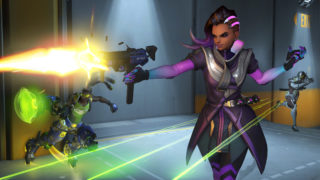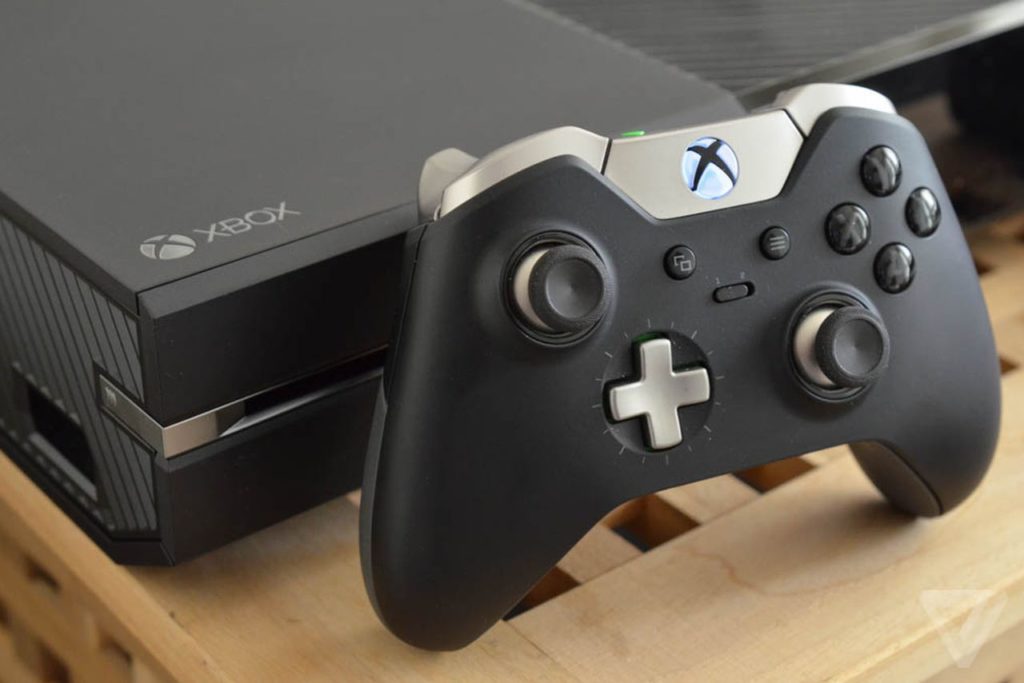We take one final look back before celebrating the New Year. [a]listdaily speaks to Nicole Pike, director of games at Nielsen, to talk about the past year’s biggest gaming trends and how they might impact what’s to come in 2017.

What were some of this year’s biggest trends and developments in console gaming?
First and foremost, the biggest news of the year was the mid-generation console updates. Sony put out the PlayStation 4 Pro, Microsoft released the Xbox One S and announced Project Scorpio for 2017, and it’s the first time we’ve ever seen that happen within console lifetimes. It mimics the smartphone or Apple approach, where we don’t need to wait for a big new release, but manufacturers are starting to think about upgrades and keeping up with technology over the course of an existing system instead of letting it run its course over seven or eight years. The PS4 Pro had some very good sales over the holiday and the Xbox One S did very well, so I think it’ll be very interesting to see how Scorpio does next year. It’s a very different way of doing things on the console side.
Were you surprised by how well consumers took to these mid-generation hardware upgrades?
Yes and no. I think any time something new is happening, there’s always a little bit of skepticism around it, and I can see some consumers being frustrated by the fact that they bought a new console a couple of years ago, and may feel obsolete. There was definitely some skepticism going in, but at the same time, we all know that there’s a strong audience that bought the Xbox One and PS4 right when they released, and those are a committed group of consumers that are always buying the latest console technology. So, I think the opportunity for such a tech savvy group to upgrade was just the kind of product they were looking for. It’ll be interesting to see, in the next couple of years, how the sales of the Pro versus PS4 (original) and Scorpio versus Xbox One S compare to each other with later adopters.
What do you think was this year’s biggest console game?
 Overwatch, for a number of reasons, but mainly because it speaks to the idea that a game can be built from the ground up with eSports heavily in mind. It’s definitely a new trend that speaks to the importance of eSports within the category these days, but also the ability to bring out a new IP. Existing and annual franchises definitely dominate the console space, so with games like Overwatch and Destiny do well, we’re seeing some strong opportunities for new IPs to make place in the console industry—which is exciting, especially for consumers. Call of Duty still did well over the holidays, maybe not necessarily as strong as everyone would have thought, but Overwatch put new life into the console industry.
Overwatch, for a number of reasons, but mainly because it speaks to the idea that a game can be built from the ground up with eSports heavily in mind. It’s definitely a new trend that speaks to the importance of eSports within the category these days, but also the ability to bring out a new IP. Existing and annual franchises definitely dominate the console space, so with games like Overwatch and Destiny do well, we’re seeing some strong opportunities for new IPs to make place in the console industry—which is exciting, especially for consumers. Call of Duty still did well over the holidays, maybe not necessarily as strong as everyone would have thought, but Overwatch put new life into the console industry.
[The huge success of Overwatch] is probably the exception rather than the norm. Obviously, it takes a lot of money—especially for a new IP—on both the development side and marketing to compete with the stalwart franchises we have on the console space. While a company like Blizzard has the opportunity to make a big splash, I think it capitalized on the eSports trend. It just came at a really good time when there was an opportunity to expand past the five or six titles that dominate eSports today by jumping that trend while it was on the rise, which created more excitement and acceptance of it. But it also provided some innovations and changed up first-person shooters in a way that a lot of titles haven’t.
How did Nintendo do this year?
Nintendo had an interesting year in that they decided to cut things off with the Wii U and coming out quickly with Switch. Then there’s also the NES Classic Edition, which seemed to be a surprise for them. Pokémon GO isn’t console, but it made Nintendo more top-of-mind after what happened with Wii U. It’s been a transitional year for Nintendo, and they did a good job staying relevant. We’ll see how that carries over to the Switch launch.
Nintendo’s entry into the mobile market was long overdue, in the sense that they had some extremely logical IPs that were a great fit with a mobile audience. I think the fact that they finally jumped into the space was exciting for everyone and breathed some new life into mobile. A lesson we can learn is that strong IP can do well in the mobile space, and we’ll probably see more people leverage the IPs that they already have to make a big splash on mobile.
How do you think the first year of VR has gone?
I think it went about as well as expected. One of the big things about VR, if we take away devices like Google Cardboard, is the inherent cost barrier. The Xbox One S and PlayStation 4 Pro are competing for gamers’ dollars, and we’re still early in the technology cycle, so it doesn’t surprise me that these [premium VR] devices didn’t take off and sell a lot more. I think they did what was intended, which was to get VR into the hands of early adopters. Hopefully, that will build excitement and trust on the developers’ end to get more content. Ultimately, the success formula is going to be getting the costs to the point where it won’t be a barrier to a broader base of consumers in addition to getting the content piece right—making sure that there’s content beyond enhanced gaming experiences that will really knock people’s socks off.
What were some of the most significant developments in eSports this year?
ESports had a big year. First of all, there’s the attention that it got, and a big part of that was some of what we saw in the second half of the year around traditional sports getting involved in eSports. It creates more awareness, especially on the investor end. Secondly, more people (especially those outside of gaming) are seeing eSports as a legitimate trend and are either looking to jump on board. We’ve even seen the announcement of a Will Farrell movie, where he’ll be a professional gamer, and the White House hosted an eSports tournament event this year. There’s just a lot more acknowledgement that eSports is becoming a part of our culture.
I think the rise of amateur eSports is also very interesting. PlayStation came out with PlayStation Tournaments and Xbox has its own tournament platform, Xbox Live Arena, in beta testing. EA is making a big push by announcing how important the competitive aspect of things is to all of their games moving forward. That’s a big trend, and having a lot of publishers are capitalizing and monetizing on the eSports trend is going to be exciting to watch. It’s going to allow more consumers to get involved in eSports on a personal level, as opposed to just watching it.
ESports is known for being mainly PC games, and Overwatch gave hope to the idea that there’s an opportunity for new games to have a space within eSports and bring in more of the console aspect. Traditionally, especially outside the US, people think of eSports as heavily PC. But with what we’re seeing with console manufacturers, Overwatch, and a few other games—console eSports is definitely a trend to watch. I think it’s more likely to grow to rival PC than mobile.
Learn everything you need to know to invest in today’s fastest-growing media channel—Competitive Gaming and eSports on 2.16.17 in Los Angeles. Go to alistsummit.com for more info.

